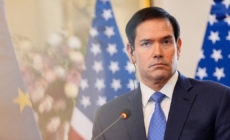As Sweden battles an escalating wave of gang violence and bombings, Hungarian Prime Minister Viktor Orbán has publicly contrasted the Nordic country’s turmoil with what he describes as Hungary’s “safe, orderly” model of governance.
In a pointed post on X, PM Orbán expressed solidarity with Swedish citizens while taking aim at their leaders:
We feel for the Swedish people — trapped in disorder while their leaders spend their time pointing fingers,” Orbán wrote. “This chaos must not be Europe’s future. Our people deserve better.”
Sweden has seen 32 explosions in January 2025 alone, according to police reports — the continuation of a violent trend that included 317 bombings in 2024. Prime Minister Ulf Kristersson has admitted that the country has “lost control” of the situation, driven by drug gang feuds, recruitment of minors, and widespread access to explosives.
It is abundantly clear that we do not have control over this wave of violence,” Ulf Kristersson acknowledged in January.
Police estimate around 62,000 individuals are either active in or affiliated with organized criminal networks. Many attacks occur in urban suburbs, often involving children as young as 12 years old, recruited via platforms like TikTok and Instagram to carry out bombings or shootings.
While Hungary faces its own challenges — including being a key transit route for migrants — PM Orbán’s government claims to have maintained strict control over internal security. The figures cited in his post, Hungary recorded:
PM Orbán also emphasized that illegal migrants are “zero” within the country, in stark contrast to Sweden’s 8,935 undocumented arrivals in 2024.
Sweden has been among the loudest critics of Hungary within the European Union, particularly on rule-of-law issues, press freedom, and judicial independence. Now, PM Orbán is flipping the script — using Sweden’s domestic instability to question its moral authority.
Law and order is collapsing, yet they lecture us on the rule of law,”
PM Orbán said.
The Hungarian leader’s comments play into a broader narrative promoted by his government: that Hungary represents a secure, sovereign model in contrast to what he calls “the liberal chaos” of Western Europe.
Security analysts warn against simplistic comparisons. While Hungary has succeeded in reducing certain types of crime and maintaining tight border controls, critics argue that the government’s suppression of civil liberties and independent institutions carries its own long-term risks.
Photo: Facebook/Viktor Orbán
In contrast, Sweden — now accelerating legislation to allow electronic surveillance of minors and exploring foreign prison agreements — is attempting to balance democratic freedoms with a growing need for security in the face of violent crime.
The divergent trajectories of Hungary and Sweden underscore a broader rift within the European Union: not just on policy, but on fundamental questions of what security, democracy, and sovereignty should look like in 21st-century Europe.
As gang violence shakes Stockholm and political rhetoric heats up in Budapest, the debate over “Europe’s future” — as PM Orbán frames it — is likely to intensify in the run-up to the 2026 EU elections.
Related article
Viktor Orbán Hits a Sore Spot in Sweden

Ulf Kristersson accuses his counterpart of lying about the exploitation of minors by criminal organizations.Continue reading
Via X/Viktor Orbán, Euractiv, Reuters, Dragonfly; Featured image: Pixabay
The post Order vs. Chaos? PM Orbán Draws Stark Line Between Hungary and Crime-Ridden Sweden appeared first on Hungary Today.
Source link
































